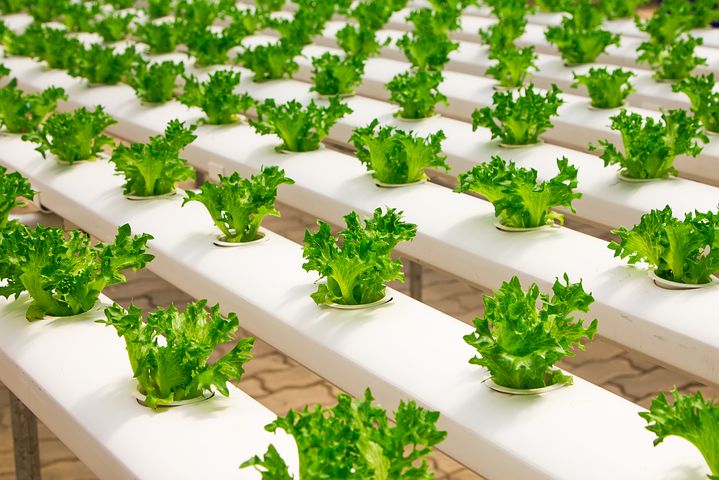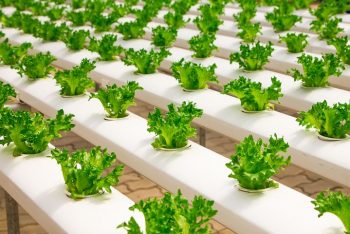 Have you heard about the garden of the future, vertical farming? It will feed our world population by producing food for a fraction of the current planetary cost, with no pesticides, and just 10% of the water used in agricultural farming.[1] I recently became somewhat obsessed with what is known as vertical gardening. It began when my daughter gave me an indoor hydroponic garden for Mother’s Day. When I opened the box and read through the instructions, I was amazed. The seeds come in tiny pods and grow with water, plant food, and LED lights. There is no tilling soil in the hot sun required, no fertilizing soil, digging, or weeding, no chemicals, no damage from insects or animals. I soon imagined a self-sufficient, vertical garden on a larger scale that could fit in my home and provide me with fresh produce year-round. And as a vegan, that would be nearly my entire diet. It turns out that this kind of gardening is being done on a grand scale by entrepreneurs around the world.
Have you heard about the garden of the future, vertical farming? It will feed our world population by producing food for a fraction of the current planetary cost, with no pesticides, and just 10% of the water used in agricultural farming.[1] I recently became somewhat obsessed with what is known as vertical gardening. It began when my daughter gave me an indoor hydroponic garden for Mother’s Day. When I opened the box and read through the instructions, I was amazed. The seeds come in tiny pods and grow with water, plant food, and LED lights. There is no tilling soil in the hot sun required, no fertilizing soil, digging, or weeding, no chemicals, no damage from insects or animals. I soon imagined a self-sufficient, vertical garden on a larger scale that could fit in my home and provide me with fresh produce year-round. And as a vegan, that would be nearly my entire diet. It turns out that this kind of gardening is being done on a grand scale by entrepreneurs around the world.
The creators of these industrial gardens have their sights on bringing fresh food to cities and food deserts in the U.S. and around the globe to feed the world. Just think about how this could change the health of our world’s population! After watching many hours of documentaries to catch up on what I had been missing for the last 10 to 20 years, it brought me back to the origins of my appreciation for growing food, established in my childhood through our own family garden.
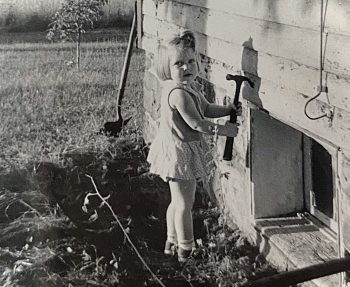 My parents, born during The Great Depression, were very industrious, hard-working role models. My father renovated half of our house and built the other half by himself, with some help from the children. My mother believed in working hard to keep a good home for the family, and she passed that on to us by requiring chores to be done daily. One day, my parents decided they wanted to have a family farm, which began with a vegetable garden.
My parents, born during The Great Depression, were very industrious, hard-working role models. My father renovated half of our house and built the other half by himself, with some help from the children. My mother believed in working hard to keep a good home for the family, and she passed that on to us by requiring chores to be done daily. One day, my parents decided they wanted to have a family farm, which began with a vegetable garden.
The garden was quite big. We each chose vegetables that we wanted to plant and were responsible for the weeding, which was not the fun part. But the planting of the seeds and watching the plants grow was pretty amazing to me! Eating corn on the cob and watermelon that we had grown and then eaten outside on the picnic table that my dad had made for us was all the sweeter.
As an adult, I have fond memories of working in nature and learning about the world of plants and the life that they give us. We were fortunate to create our own farm-to-table way of living. We had food and family, learned the value of working hard, and we learned about growing food to nourish our bodies.
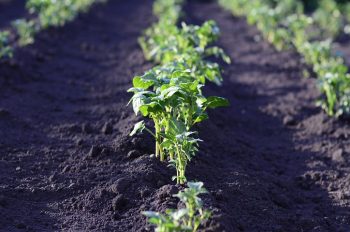 As with most of us who came after The Greatest Generation, convenience became the priority in my adult life when it came to obtaining food, and I became a “city girl.” Still, I have always dreamed of having a garden again someday.
As with most of us who came after The Greatest Generation, convenience became the priority in my adult life when it came to obtaining food, and I became a “city girl.” Still, I have always dreamed of having a garden again someday.
Vertical gardening is surely the future, successfully moving forward to a healthier population and planet. Many companies are already working hard to bring their fresh produce to the big cities. China, France, the U.S., Canada, and Japan all have versions of this new industrial farming technology in place and it is working, with The Netherlands leading the way.[1] These farms don’t wish to replace the small soil farms around the world. They want to solve the problem of providing enough fresh food for growing city populations and reduce the harmful effects on the planet that would be inevitable by producing an equal amount of food via conventional means.
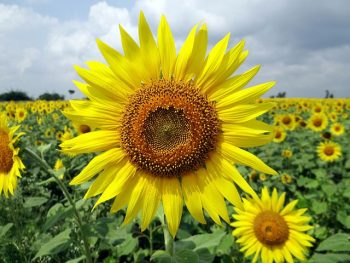 It’s an exciting idea that brings hope for our world. In the Coronavirus pandemic, we’re seeing that “high risk” includes not only the older population, but also anyone with obesity, diabetes, asthma, cardiovascular disease and many other health problems brought on by improper nutrition. This highlights how healthy food leads to well-nourished people, less disease and the probability of a better outlook for living. Thanks to the agricultural visionaries, investors, and scientists, we have a look into the possibility of a brighter, more healthful future for the entire world. As we vegans likely agree, fresh produce is the best contributor to the health and well-being of humanity.
It’s an exciting idea that brings hope for our world. In the Coronavirus pandemic, we’re seeing that “high risk” includes not only the older population, but also anyone with obesity, diabetes, asthma, cardiovascular disease and many other health problems brought on by improper nutrition. This highlights how healthy food leads to well-nourished people, less disease and the probability of a better outlook for living. Thanks to the agricultural visionaries, investors, and scientists, we have a look into the possibility of a brighter, more healthful future for the entire world. As we vegans likely agree, fresh produce is the best contributor to the health and well-being of humanity.
[1] Plantagon. “Backlight The Rise of Vertical Farming.” YouTube, Backlight, May 2017, 47:09, https://www.youtube.com/watch?v=WOQHwjnOTng&t=1295s
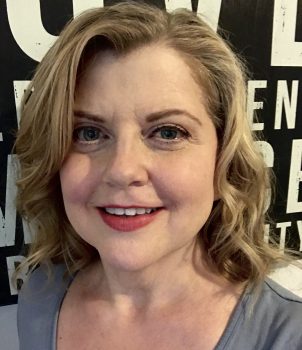 Maureen Tierson is a certified Vegan Lifestyle Coach & Educator. Her passion is to make the world a better place by showing more people that being vegan is doable, healthful, and joyful! She lives in Rochester, New York, with her beloved rescue pup, Zuzu. She is pursuing a Masters of Science in Clinical Nutrition and teaches English to children in China online. Follow her on Instagram @joylovevegan and Facebook, and visit her on the web at joylovevegan.com.
Maureen Tierson is a certified Vegan Lifestyle Coach & Educator. Her passion is to make the world a better place by showing more people that being vegan is doable, healthful, and joyful! She lives in Rochester, New York, with her beloved rescue pup, Zuzu. She is pursuing a Masters of Science in Clinical Nutrition and teaches English to children in China online. Follow her on Instagram @joylovevegan and Facebook, and visit her on the web at joylovevegan.com.

